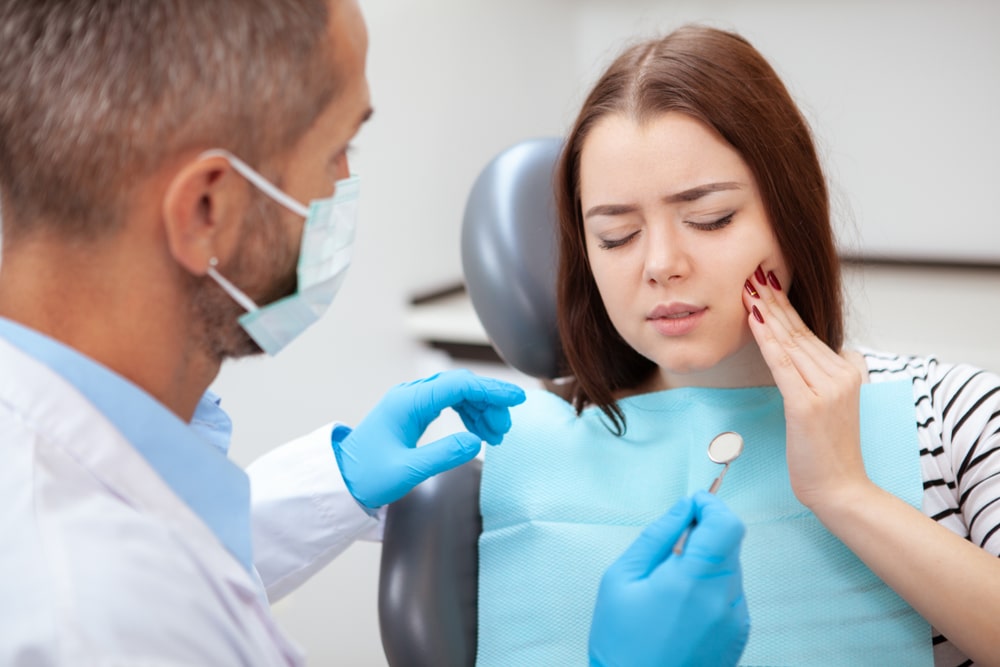
Dental emergencies can occur at any time, and knowing how to respond effectively can make a significant difference in preserving your oral health. In Québec, where access to specialized dental services is widely available, being informed about your options and acting quickly can prevent complications and ease discomfort. Whether you’ve suffered a sudden tooth injury or developed a painful infection, understanding how to navigate urgences dentaires Québec is crucial.
Understanding Dental Emergencies
A dental emergency involves any situation that requires immediate dental care to alleviate severe pain, stop ongoing tissue bleeding, or save a tooth. Common examples include broken or knocked-out teeth, severe toothaches, infections, and trauma to the gums or jaw. Not all dental issues require emergency intervention, so knowing what constitutes a real emergency is the first step toward managing it effectively.
Common Types of Dental Emergencies
- Toothaches: Persistent or sharp tooth pain can indicate underlying problems such as decay, infection, or a damaged filling. Immediate attention is necessary if the pain is severe or accompanied by swelling.
- Chipped or Broken Teeth: Accidents or biting hard foods can lead to fractures. Even if the break isn’t painful, it should be evaluated quickly to avoid further damage.
- Knocked-Out Teeth: Time is critical with avulsed (knocked-out) teeth. If treated within 30 to 60 minutes, there’s a good chance the tooth can be saved.
- Abscessed Teeth: A dental abscess is a severe infection that can spread to other parts of the body. Symptoms include swelling, fever, and a bad taste in the mouth.
- Lost Fillings or Crowns: While not always painful, a missing filling or crown exposes the tooth to further damage and discomfort.
- Injuries to Gums or Jaw: Trauma resulting in bleeding, lacerations, or dislocation requires immediate care from an emergency dental provider or medical professional.
Immediate Actions to Take
Taking the right steps before reaching a dental professional can help reduce pain and increase the chances of successful treatment. Here’s how to manage some common urgences dentaires Québec:
Toothache Relief
- Rinse your mouth with warm salt water.
- Use dental floss to remove any trapped debris.
- Apply a cold compress to the outside of the cheek.
- Avoid placing aspirin directly on the tooth or gums.
Managing a Knocked-Out Tooth
- Handle the tooth by the crown, not the root.
- Rinse it gently with water if dirty, but do not scrub.
- Try to reinsert it into the socket if possible.
- If reinsertion isn’t an option, place the tooth in milk or a tooth preservation solution.
- Visit an emergency dental clinic immediately.
Handling Broken Teeth
- Rinse your mouth with warm water.
- Save any pieces of the tooth if possible.
- Apply gauze to stop any bleeding.
- Use a cold compress to reduce swelling.
Abscessed Tooth
- Rinse with salt water several times a day to reduce discomfort.
- Do not attempt to pop the abscess.
- Seek emergency dental treatment as soon as possible.
Where to Find Help in Québec
In Québec, access to urgences dentaires is relatively streamlined through various emergency dental clinics, public health services, and private practices. Many dental offices offer emergency slots for urgent cases, and hospital emergency departments may also assist in more complex situations, especially those involving trauma or infections.
Emergency Dental Clinics
There are numerous dental clinics across Québec that specialize in urgences dentaires Québec. These clinics often provide same-day appointments and extended hours, including evenings and weekends. A quick online search or a call to a local clinic can help you find immediate care.
Hospital Emergency Departments
For dental emergencies involving facial trauma, jaw dislocation, or severe infections, it may be necessary to go to a hospital emergency department. In some cases, hospitals have oral surgeons or dental professionals on call.
Dental Associations and Hotlines
The Ordre des dentistes du Québec and local public health networks offer directories and emergency hotlines that can guide patients to available emergency services. These resources are particularly helpful when you’re unsure whether a condition requires immediate treatment or can wait until regular office hours.
Preventing Dental Emergencies
While not all dental emergencies can be prevented, taking certain precautions can reduce your risk significantly. Prevention involves regular care, protective measures, and awareness.
Maintain Regular Dental Checkups
Routine visits to the dentist help identify problems before they become emergencies. Dentists can spot early signs of decay, gum disease, and damaged restorations.
Practice Good Oral Hygiene
Brushing twice a day, flossing daily, and using fluoride toothpaste help keep your teeth and gums strong and healthy, reducing the risk of infections and cavities.
Wear Protective Gear
If you participate in contact sports or activities that pose a risk to your teeth, wear a mouthguard. Custom-fitted guards from your dentist provide the best protection.
Avoid Risky Habits
Avoid chewing ice, hard candy, or opening packages with your teeth. These actions can crack or chip your teeth and lead to painful conditions.
Planning Ahead for Emergencies
Having a plan in place for urgences dentaires Québec can make a real difference when an emergency arises. Keep your dentist’s contact information readily accessible, know where the nearest emergency clinic is located, and have a dental first aid kit at home. This kit should include:
- Gauze pads
- A small container with a lid (for knocked-out teeth)
- Pain relievers (acetaminophen or ibuprofen)
- Dental cement (temporary fix for lost fillings)
- Salt packets (for rinses)
Additionally, consider dental insurance plans or health coverage that includes emergency dental care. Many Québec residents are covered under RAMQ for certain dental procedures in specific situations, especially children and low-income individuals.
The Importance of Timely Intervention
Delaying treatment for a dental emergency can lead to more serious health problems, including the spread of infection, permanent tooth loss, and even systemic health complications. Pain and swelling are indicators that should never be ignored. By addressing issues promptly, patients can often avoid more invasive and costly procedures in the future.